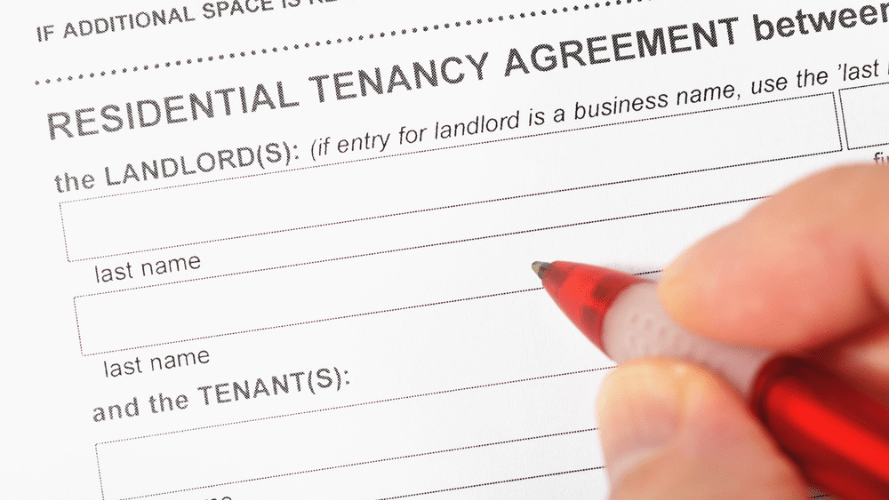Providing a written contract or rental agreement is an important part of organising a successful tenancy.
While the vast majority of landlords will have this aspect covered, there may be some private tenants renting property without a written contract.
A tenancy agreement is a legally binding document that gives the tenant the right to live in the rental property and the landlord the right to receive rent.
It's therefore important that the tenancy agreements landlords are issuing are up to date and legally compliant.
Due to the fast-paced nature of the rental sector, landlords who don't employ the services of a letting agent could potentially be putting themselves at a higher risk with the contracts they're supplying.
With all this in mind, we've taken a look at why tenancy agreements are vital and how one should be put together...
Why are tenancy agreements so significant?
Providing a tenancy agreement to your renters may not be a legal requirement, but if you intend to take a deposit – which the vast majority of landlords do – then it’s in your best interest to enter into a written tenancy agreement.
Without a written tenancy agreement, you won't be able to claim possession of the property using the section 21 accelerated process once the notice has expired. One of the key criteria for issuing section 21 accelerated proceedings is having a tenancy agreement in place.
This is just one of the legal reasons why a signed tenancy agreement is so crucial for landlords. There are also several more practical reasons.
Firstly, offering your tenants a professional tenancy agreement shows you care and that you're taking your role as a landlord seriously.
It also allows you to set clear boundaries from the off – such as can the tenants keep pets and are they allowed to sublet the property?
By making clear what you expect of the tenant and what they should expect of you – both can feel more at ease, and the chances of a disagreement or dispute further down the line are also reduced.
What should a tenancy agreement include?
The most basic tenancy agreement for an AST needs to include:
- The property address and
- The details of all parties involved
- The landlord’s service address
- The amount of rent and how it will be paid by the tenant
- The deposit amount and which scheme it will be protected by
- The proposed term of the tenancy
- Notice periods required to bring the tenancy to an end
- The rights and obligations of both parties
- A forfeiture clause to allow possession of the property where the tenant is at fault
- Any special arrangements
There are other things which are often included in a tenancy agreement. For example, whether or not the tenant can sub-let, the landlord's obligation to provide notice to inspect the property, who is responsible for repairs, whether the tenant is allowed to keep pets and any other obligations expected of the tenant or the landlord.
It's important that two copies of any agreement are signed and dated: the tenant should have one signed by the landlord, and the landlord should have one signed by the tenant.
If a landlord or tenant wants to change the terms of a tenancy agreement once the tenancy is underway, the other party must consent to the change.
How to compile a tenancy agreement
Many landlords put together their own tenancy agreements, and this guide from the Government is a good starting point for any DIY landlords.
It's key that the document is legally binding and is up to date. So if you create it yourself, it would be wise to run it past an experienced letting agent or property lawyer to ensure it ticks all the boxes.
Most letting agents or rental sector firms provide templates or sample agreements if you don't want to make your own tenancy agreement. You can also ask a solicitor to draft a tenancy agreement for you to your specific requirements.
A tenancy agreement is clearly a crucial document for letting a property, so if you don't have one in place, or you're unsure about the agreement you're currently providing, you should take the time to review the Government guidance or ask an expert.
Tenancy agreements benefit both landlords and tenants, helping to reduce the potential risk of problems or disputes.
If you're a starter landlord, you can read about what else you need to do before letting a property here.
Enjoying our content?
Get the latest letting news, views and tips from HomeLet straight to your inbox.

